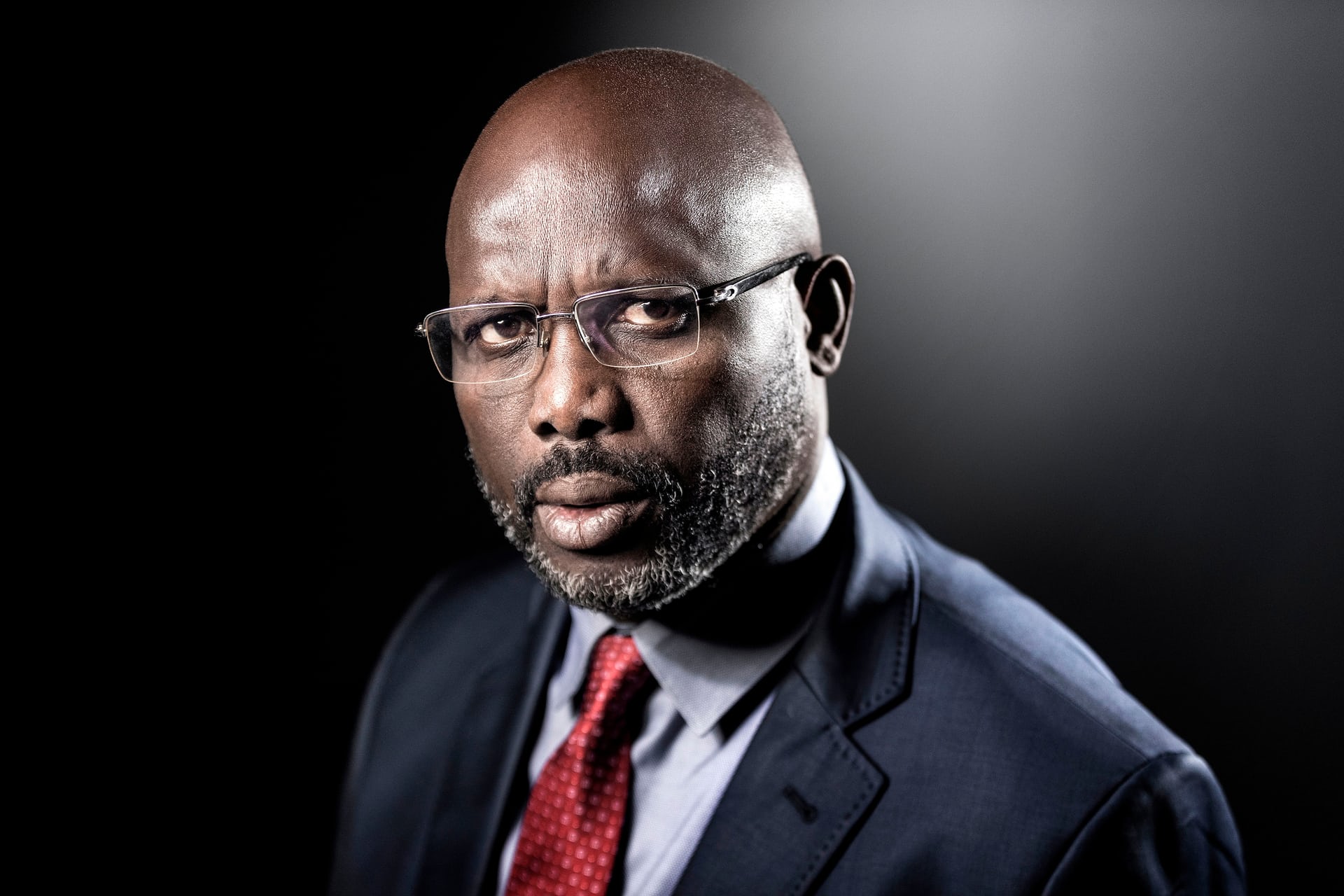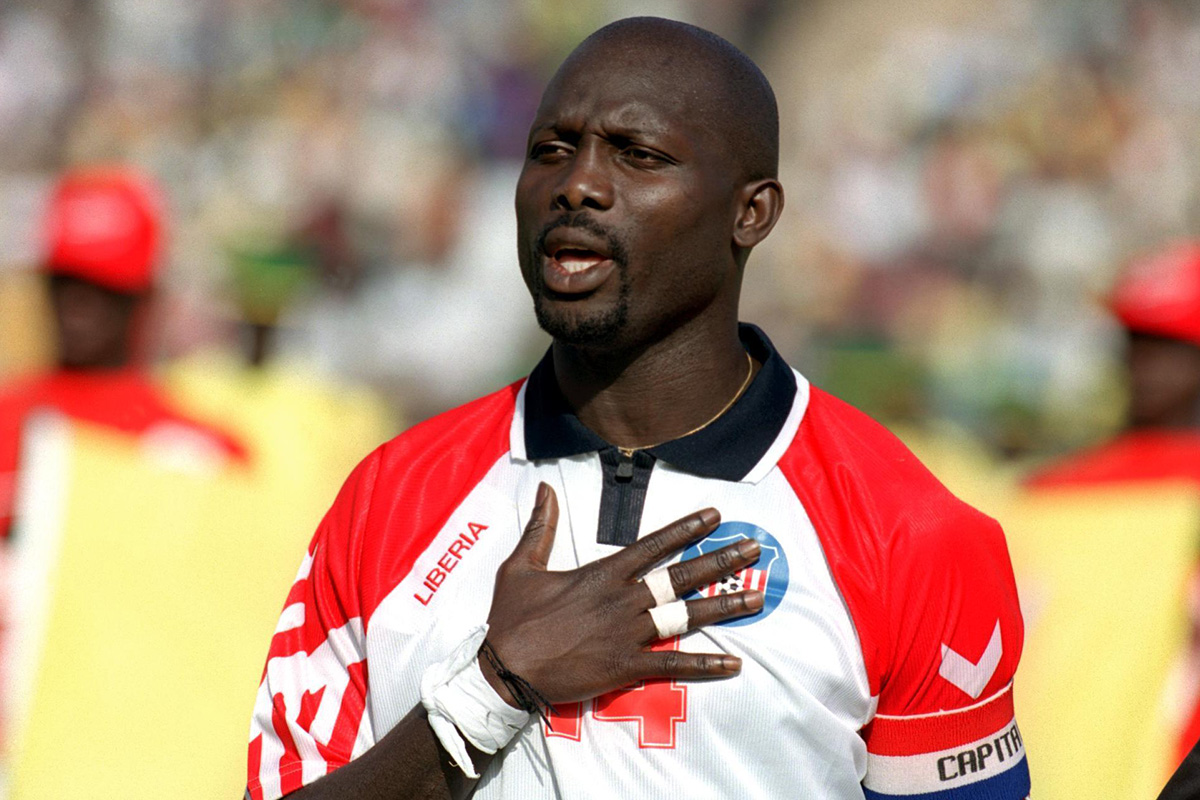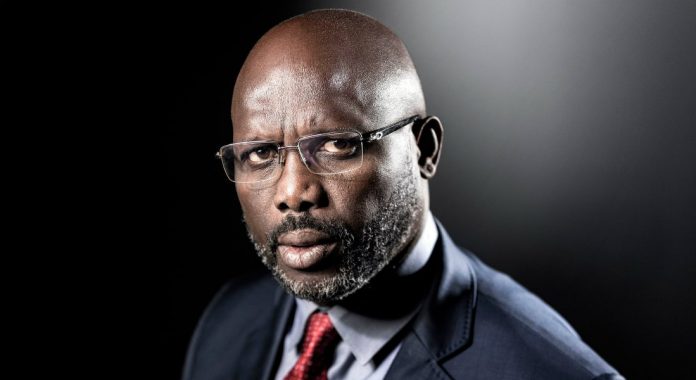Liberia’s 25th president, George Weah, has a tough task ahead of him. The former footballer turned politician must try to revive a resilient yet deeply divided, poorly managed country that’s still feeling the aftermath of a protracted armed conflict.
Weah is stepping into the office most recently occupied by Africa’s first elected woman head of state, Ellen Johnson Sirleaf. He will inherit a number of challenges from her administration. These include high levels of unemployment, domestic debt and a depreciated currency. Donor aid fatigue is high. Growth projections are low. Corruption reigns in the West African nation, and human development is waning.
 Weah has promised to make “transforming the lives of all Liberians” his “singular mission”. His vow, in his December acceptance speech, to weed out the “menace of corruption” appears noble.
Weah has promised to make “transforming the lives of all Liberians” his “singular mission”. His vow, in his December acceptance speech, to weed out the “menace of corruption” appears noble.
The problem is that these political platitudes stand in stark contrast to some of his other promises, such as “relax[ing] constraints to private investment” and “protect[ing] business profits”.
Maximising corporate earnings and improving quality of life don’t have to be mutually exclusive. But in Liberia, profit appears to have always trumped people. Many Liberians remain worried that Weah’s administration may not reverse this long historical trend.
However, there are concrete steps he can take to steer the country of 4.5 million people in a different direction. The most important include inclusive growth, job creation and curbing corruption.
A new economic approach
Weah will have a laundry list of priorities to tackle, among them judicial and electoral reform. But he must focus on a handful of tangible goals and work on achieving them in six years if he’s to secure a two-term mandate of 12 years. He should proceed as if he is only seeking one term in office, forget about political niceties and institute reforms like the trained striker he once was.
For starters, he must ensure that 25% of government contracts go to successful Liberian-owned enterprises through competitive bidding, in keeping with a local policy that’s intended to empower small and medium-sized enterprises.
The country imports more than 80% of its food – including rice, a staple – so preference should be given to Liberian agribusinesses operating at scale to ensure food security and decrease Liberia’s high import bill.
Weah must also turn his sights on foreign multinationals. Contracts with poor performers must be cancelled. Agreements that may be violating Liberian national laws and international human rights standards in the oil and gas, oil palm, rubber and iron ore industries must be renegotiated.
The revised agreements should generate improvements in tax collection, value-addition, employment and companies’ corporate social responsibility obligations. For instance, renewing the Liberia Extractive Industries Transparency Initiative would recommit the government to auditing contracting and resource allocation processes and implementing environmental safeguards.
Weah will have to build an industrial base in Liberia. He can do this by insisting that foreign companies work with his government to establish wood, rubber, palm oil, and steel rod processing plants in regional hubs throughout the country. Extra revenue generated from these activities should be invested in road reconstruction, electricity expansion, water and sanitation services.
No fear, no favour
The new president must also look to his own government to make wholesale changes that will benefit the country more broadly.
There is excessive waste in government spending. Weah can slash recurring expenditure such as exorbitant salaries for political appointees, large travel budgets for government ministries and agencies and fuel and phone card allotments. These savings can be used to pay doctors, nurses, teachers and police officers a living wage.
All government ministries must be audited. Appointees to the executive branch should declare their assets for public scrutiny.
 Several high profile politicians have been accused of theft in recent years. One of them is Weah’s own political ally and former speaker of the House of Representatives J Alex Tyler. Weah must not play favourites. He needs to appoint a special prosecutor to arraign the accused, investigate them and, where necessary, freeze their assets until all funds are remitted to government. The convicted must be barred from serving in his administration.
Several high profile politicians have been accused of theft in recent years. One of them is Weah’s own political ally and former speaker of the House of Representatives J Alex Tyler. Weah must not play favourites. He needs to appoint a special prosecutor to arraign the accused, investigate them and, where necessary, freeze their assets until all funds are remitted to government. The convicted must be barred from serving in his administration.
This will send a clear message that the president is truly committed to protecting Liberians from those who egregiously evade the public trust.
Crucially, Weah must also wage peace. The United Nations Mission in Liberia is set to end its security mandate in March. Weah should select astute ministers of defence and justice to expand the remit of the Armed Forces of Liberia and the Liberia National Police. This will mean sourcing funding to train security personnel regularly and compensate them adequately to avoid defection.
Far tougher than football
The task of running Liberia is far removed from the heady glory of football fame. But if Weah can bring his work ethic from the field, and assemble a formidable team comprising both women and men with surplus intelligence and integrity, he may well succeed.
Anything short of this would mean the president risks losing favour quickly with those who elected him to score the most important goal of his life: transforming Liberia.
This article was co-authored with Silas Kpanan’Ayoung Siakor, a Liberian environmental and human rights activist.
This is an edited version of commentary the authors originally published on Al Jazeera English.




